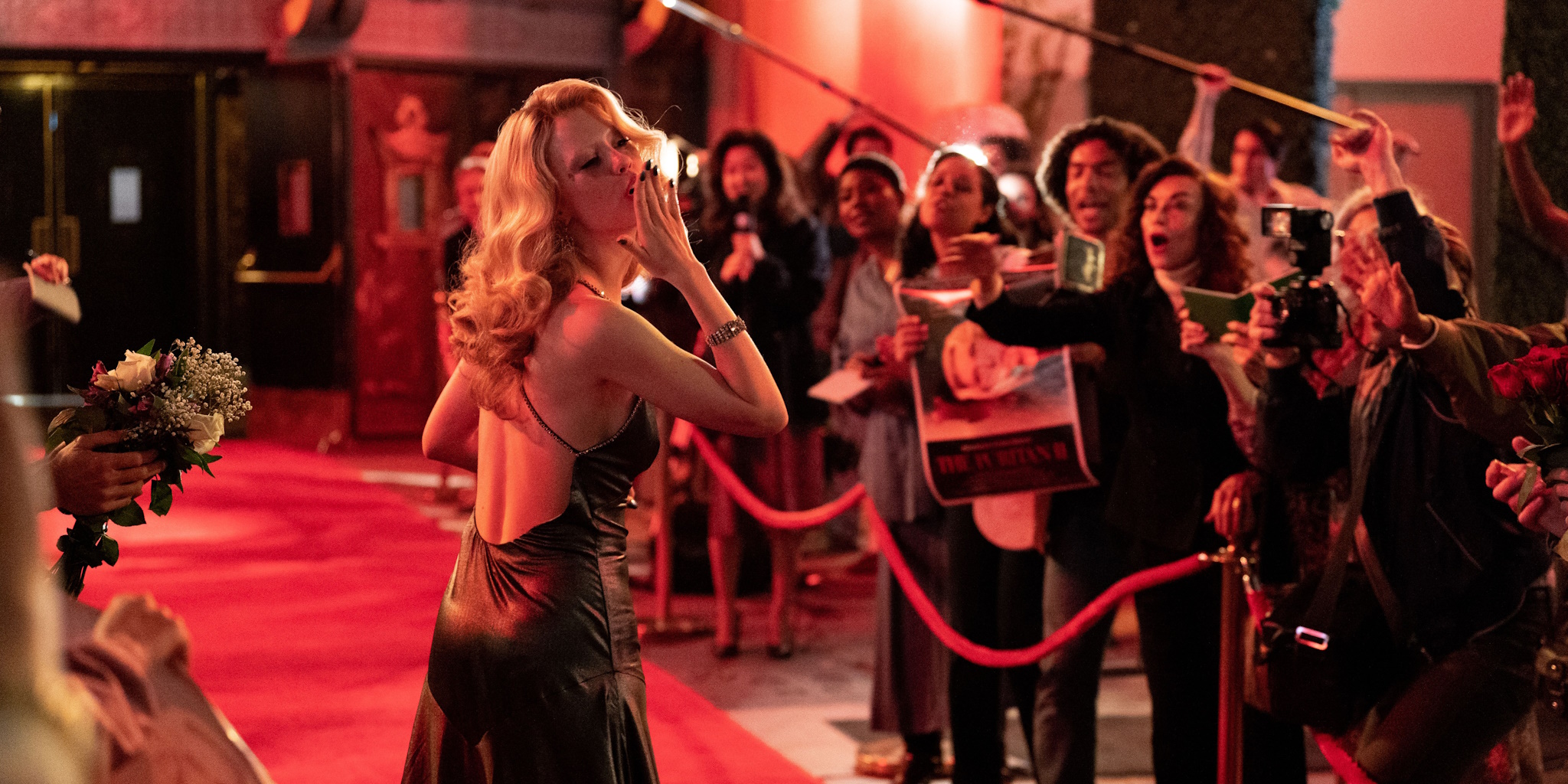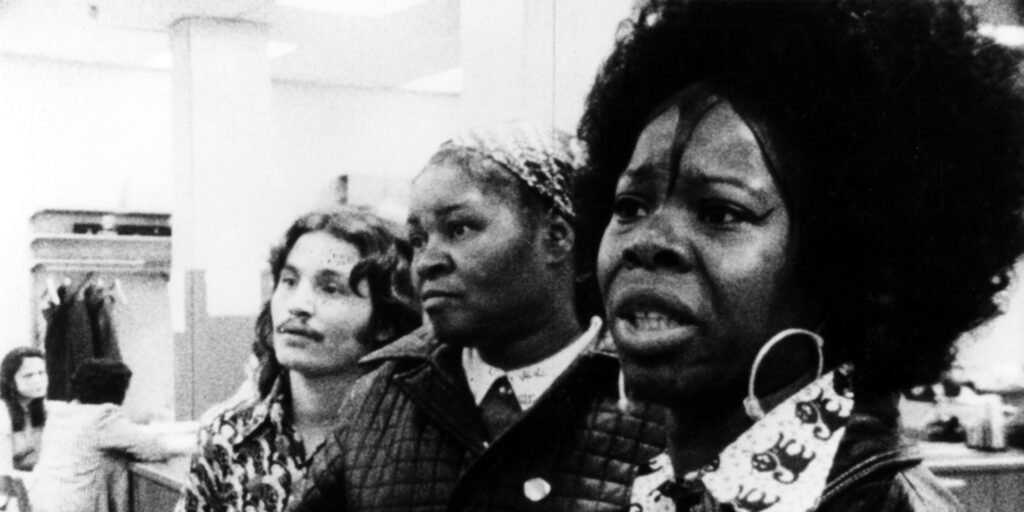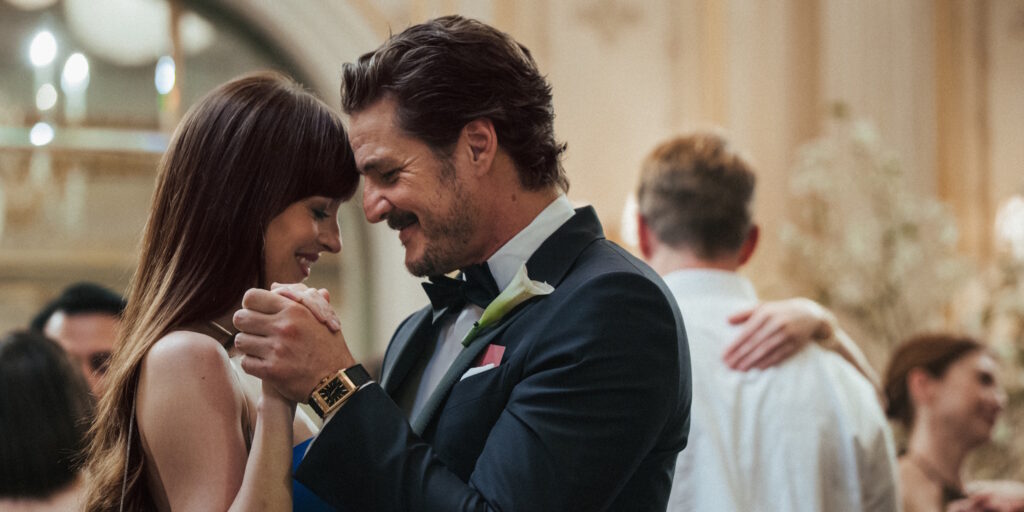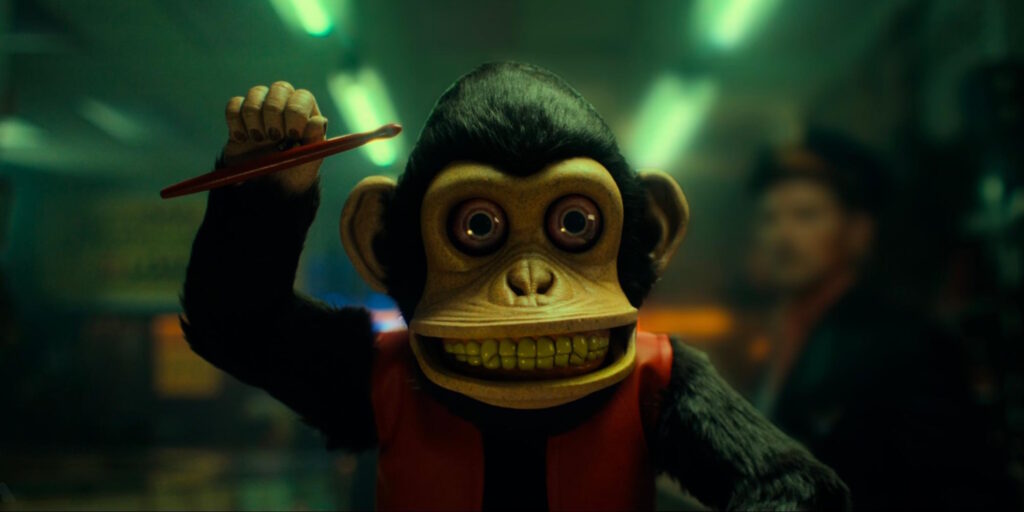When we last saw aspiring adult film starlet Maxine Minx (Mia Goth), it was the summer of 1979, and she had just backed a pickup truck over the skull of octogenarian psycho-killer Pearl (also Goth), to predictably fatal effect. Not without good cause, of course: Pearl and her husband, Howard, systematically slaughtered the cast and crew of a pornographic film that had been shooting on the sly on their southeast Texas farm. Maxine emerged as the sole survivor of this bloodbath – the final girl, if you will – but she vanished into the night before the authorities arrived to clean up the mess.
Six years later, Maxine is living in Los Angeles, where she has built a robust career in the adult-entertainment industry. While other girls are partying, she is rising and grinding (literally), rushing from strip clubs to porn shoots to the graveyard shift at a downtown peep show. She’s ready to make the leap to mainstream stardom, however. To that end, she struts into an open casting call for a low-budget occult-horror sequel titled The Puritan II and proceeds to wow no-nonsense director Elizabeth Bender (Elizabeth Debicki) with her poise and professionalism. Maxine might not exactly be the wide-eyed ingénue type, but she’s also not just another pretty face. As she confidently declares to anyone who cocks an eyebrow at her outsize dreams, she was born to be a star. You can practically see marquee lights sparkling in her eyes.
The period setting for Ti West’s MaXXXine is hardly incidental: Our anti-heroine’s white Mercedes convertible cruises through an America seized by alternating paroxysms of hedonistic excess and revanchist moralism. In 1985, the national Satanic Panic is in full swing, and LA is practically its epicenter. The notorious MacMartin preschool case is unfolding in Manhattan Beach, the music industry is facing congressional scrutiny for is allegedly malevolent influence on young minds, and the Night Stalker is terrorizing the entire Greater Los Angeles area (and points beyond) with a string of grisly home-invasion murders.
Given her tunnel-vision ambition and her prior experience with a pair of violent, psychosexual maniacs, such sensationalist boogeymen barely register for Maxine. However, a more personal threat is also prowling Tinseltown. A black-gloved killer straight out of a giallo picture is haunting Maxine’s steps, slicing up her sex-worker friends and branding their flesh with a pentagram. What’s more, this figure also seems to know exactly what transpired on that sweltering Texas farm six years ago. Meanwhile, a sleazy Louisiana private eye named Labat (Kevin Bacon) surfaces and cheerfully threatens Maxine, drawling about a mysterious client with a monomaniacal interest in her whereabouts. A pair of bumbling LAPD detectives (Michelle Monahan and Bobby Cannavale) also appear and pester her for leads. None of this is ideally timed for Maxine, who – as Elizabeth sharply reminds her—needs to focus on her first (and likely only) shot at stardom.
Rounding out a trilogy that began with X (2022) and continued with the 60-years-earlier prequel Pearl (2022), MaXXXine finds writer-director West returning to the symbiotic but sticky relationship between show business and female liberation (or damnation). However, unlike many filmmakers absorbed with such themes – from Billy Wilder to Brian De Palma, David Lynch to Sakotshi Kon – West’s stance towards his industry is more even-handed, less inclined toward the mingling of dreamy enchantment and acidic denunciation that characterizes so many movies about movies. Hollywood can be cruel, both as a business environment and a broader cultural phenomenon – just ask Pearl – but West’s trilogy also acknowledges that its social progressivism, however cynical, is still real.
Perhaps uniquely among filmmakers, West is specifically interested in the antagonistic role that America’s foundational Puritanism plays in this dynamic, and how hostile it is to feminine power. If X was about the generational clash between a liberated, licentious youth and their repressed, resentful elders – a battle in which the former emerged victorious, if only just – MaXXXine can be seen as the Reagan-era daughter conflict over the spoils of war. (Call it The Battle of the Five Agents.) Who gets to decide how women are presented, marketed, and compensated, and which messages their images are used to convey? West’s sympathies are clearly with Maxine, regardless of her self-absorption and ruthlessness. Unlike Paul Verhoeven vis-à-vis Showgirls’ Nomi, one doesn’t sense that West is snickering at his heroine. This is the case even when she literally crushes a man’s balls to protect her place in Hollywood history. (The subtext is elevated to veritable text by the fact that her victim is dressed like Buster Keaton.)
Much like Pearl – and unlike X’s more straightforward pastiche of 1970s Southern and redneck exploitation horror films – MaXXXine pulls from a host of influences, from Italian gialli to American slashers to a slightly later model of bargain-bin exploitation crime thriller. Robert Vincent O’Neil’s vigilante-prostitute Angel film series seems like a major point of reference for West, but MaXXXine is not truly a homage to any one franchise or subgenre. It’s more of a loose collection of aesthetics, motifs, and situations, a sandbox of VHS memories in which West plays with variations on the ideas that have preoccupied him for three features now.
This isn’t to say that the filmmaker is repeating himself, but MaXXXine does suggest that West has perhaps sacrificed discipline for an appealing retro veneer. It’s unquestionably the weakest and least focused of the three films, lacking both the visceral nastiness of X and the vivid psychodrama of Pearl. Yet MaXXXine doesn’t bring much to fill the resulting void other than neon-and-cocaine vibes, and even these are only applied at a superficial level. (This is no Nicolas Winding Refn joint.) The film fiddles with several tantalizing ideas, from the psychological to the sociological, but never approaches any of them with much seriousness or commitment. When Maxine runs into the literal Bates house set from Psycho (1960) to escape a murderous pursuer, it pings something vaguely metatextual, but it also feels like West is really doing it just because he could. (Thanks, Universal Studios!)
At its worst, MaXXXine feels less like a cohesive story and more like a sequence of thinly connected scenes in which Goth’s character encounters a cavalcade of cartoonish archetypes, from Bacon’s sweat-stained private dick to Giancarlo Esposito as a shady, well-coiffed lawyer to Lily Collins as the Margot Channing to Maxine’s Eve Harrington. It’s modestly entertaining, but not exactly compelling. Goth, to her credit, glides above it all: Her riveting turn in the prequel is a hard act to follow, but her performance here is still solid, credibly imagining how the Texas massacre and the following six years might have alchemized Maxine into a tougher, sharper, and more independent woman. (Although not one who has locked away her traumatic past as securely as she might have imagined.) Some red herrings notwithstanding, the identity of the killer is not much of a shock, but MaXXine is more interested in its leading lady than in the plot unfolding around her. And with good reason, too: Much Like Maxine herself, Goth was born to be a star.
MaXXXine opens in theaters everywhere on Friday, July 5.




